Ecological transition in Japan
Ecocities program
Faced with the small size of its territory, an aging population and its strong energy dependence , Japan has implemented a program to redefine its urban models . Worn by the Prime Minister , the program "eco - cities of the future " is to experiment with new systems development and urban structure at different levels of the archipelago , from the rural community Shimokawa to the international metropolis of Yokohama through the mid-sized city of Toyama . The ambition is to make ecological transition an engine of growth .
- Small logging town located on the island of Hokkaido , Shimokawa ( . 3,700 h) covers both energy independence through development of its forestry resources ( cellulosic biomass ) and inclusive economic development : the profits generated by the restructuring of the local timber industry will fund a health allowance of € 6,000 per year for everyone aged 65 and over resident, while promoting the establishment of businesses designed to support the elderly.
- The average Toyama City ( 420,000 hr. ) On the coast of the Sea of Japan focused on alternative mobility , intermodality tram / bus / train and produce new district around the axes of public transport.
- Kashiwa ( suburb of Tokyo : 405,000 h . ) Setting GHG reduction by an ambitious industrial ecology program while relying on increased academic cooperation .
- Regional metropolis of Kita- Kyushu in southern Japan ( 980,000 hr. ) Focuses its development on the principles of sustainable and green city, waste recycling , recovery of green and blue frames. Facing the problem of an aging population ( 10%), Kita- Kyushu promotes the participation of older people in local initiatives while accelerating the creation of local health facilities . It is also a city of art in renewable energy and the green economy.
- Yokohama, Japan 's second largest city (3.7 million hours). Aims to defragment the city organized around the major public transport ( reopening of abandoned rail lines ) and buildings where health services are integrated into everyday life for more of generational diversity . The focus is on innovation in the life sciences , decentralized energy scenarios and development carpool with electric vehicles.
Sources : BE 608 Japan - Embassy of France in Japan

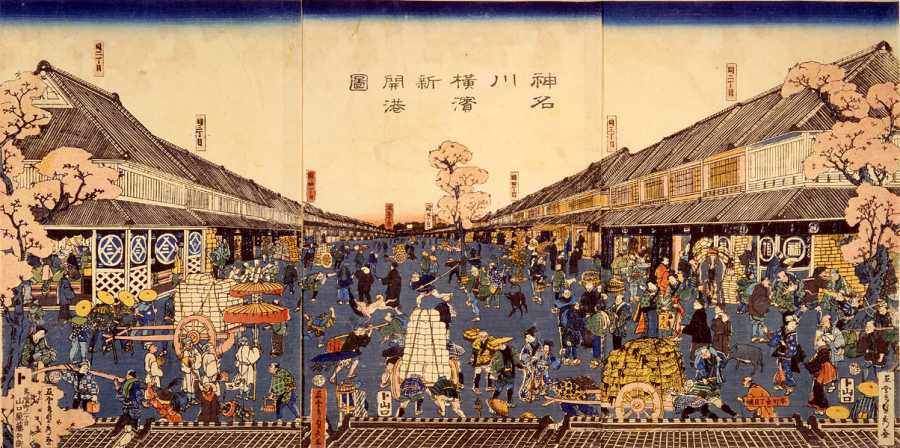
Port of Yokohama in Kanagawa, by Sadahide, 1860
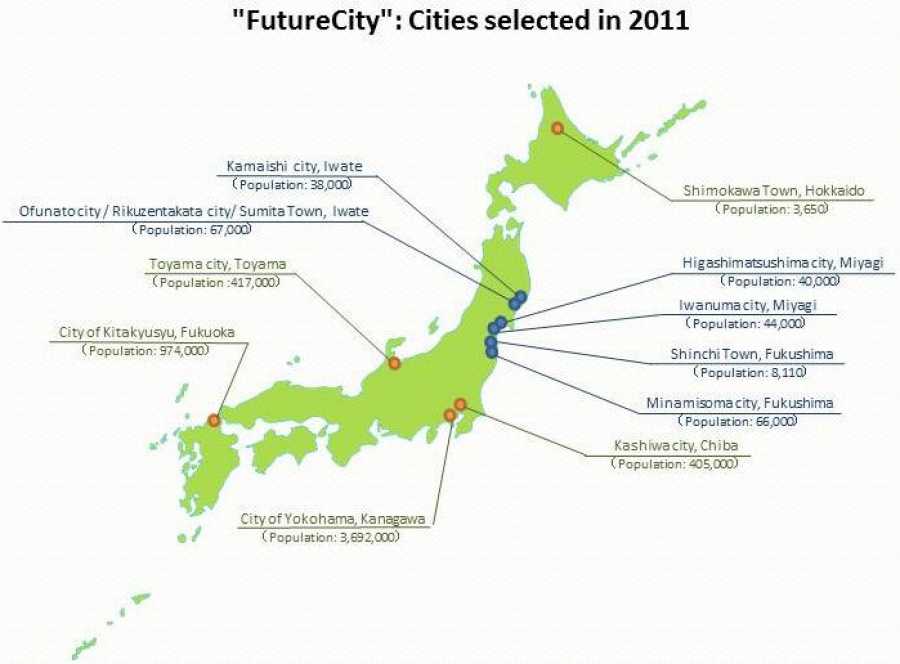
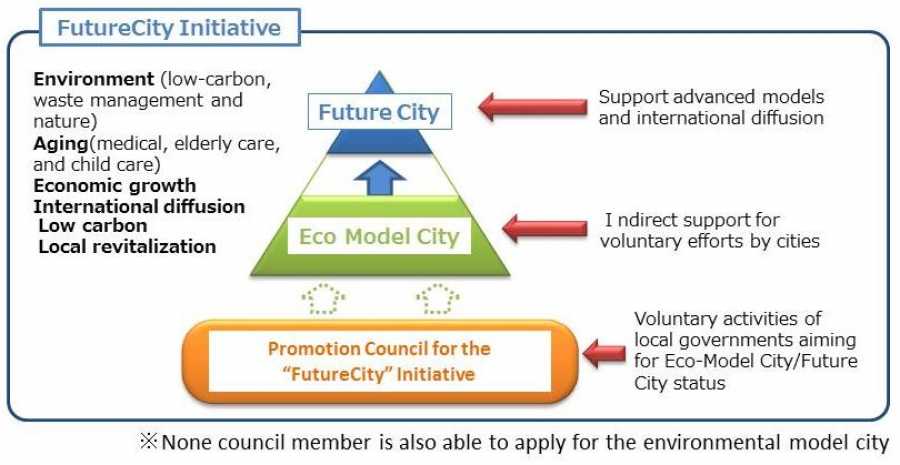
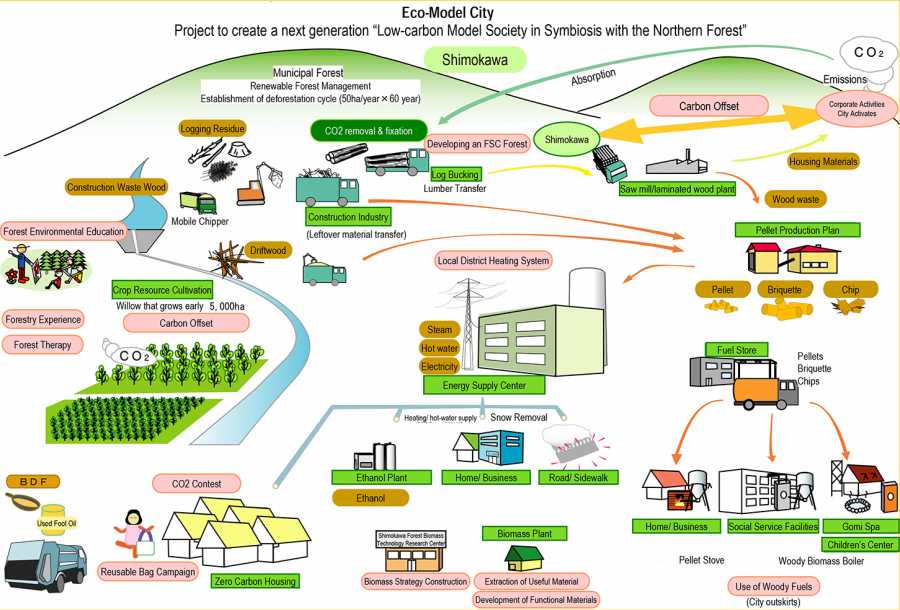
Shimokawa, a model of territorial resilience
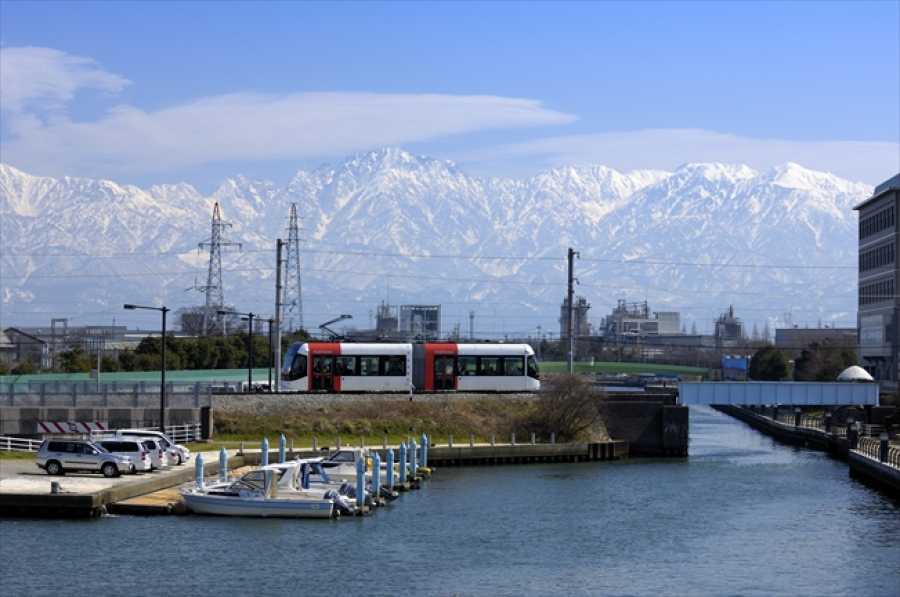
Toyama, a development model based on mobility
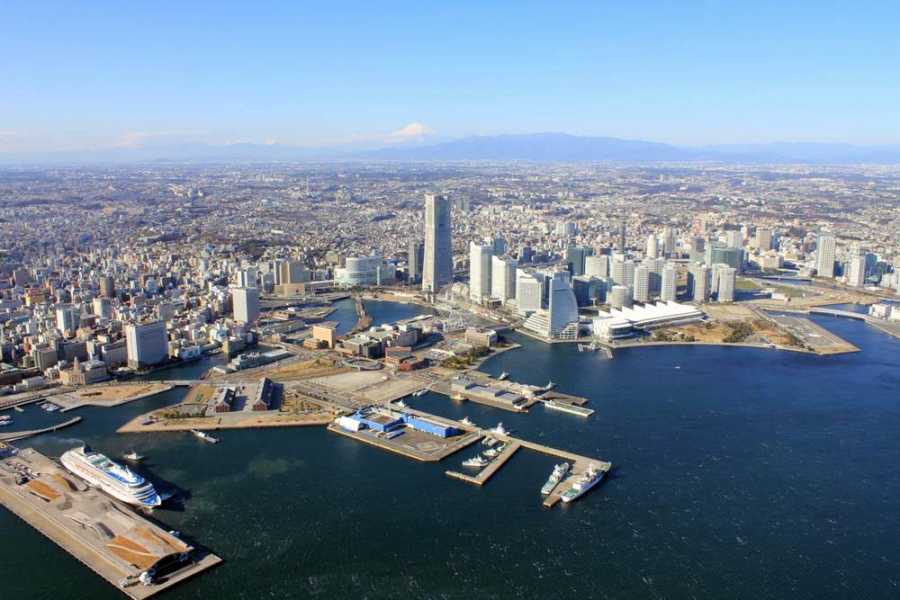
Yokohama